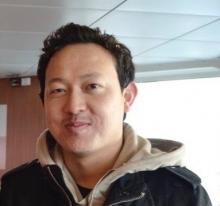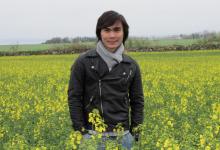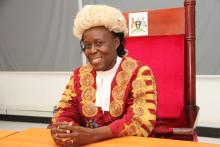Olman Segura-Bonilla, Costa Rica. Pioneer of sustainable development economics
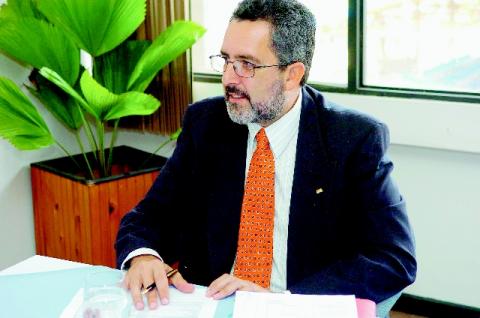
By Vibeke Quaade
Say Costa Rica and immediately images of vast beaches, rugged rainforests and unspoiled natural landscapes come to mind. In short, the kind of place that anyone who is into ecotourism would want to visit.
And indeed, Costa Rica is one of the top eco-tourism destinations in the world, widely recognized for its innovative strides in green and sustainable development.
Visitors from all over the world flock to the country renowned for its climate friendly and sustainable strategies and initiatives before sustainability became in. 25 pct. of the total land territory is made up of national parks and national reserves. Almost 40 pct. of the country is designated as green areas serving to maintain the water reserves and clean air. The declared goal is that the country will be carbon-neutral by the year 2021. So far more than 90 pct of the electricity comes from renewable sources. The concept of carbon offsets was also invented in Costa Rica.
We have come far, but these achievements were only accomplished by long-term commitment to sustainability and forward-looking knowledge-based innovations, says Olman Segura-Bonilla, Professor at Universidad Nacional of Costa Rica since 2014 and former Cabinet Minister of Labor and Social Security.
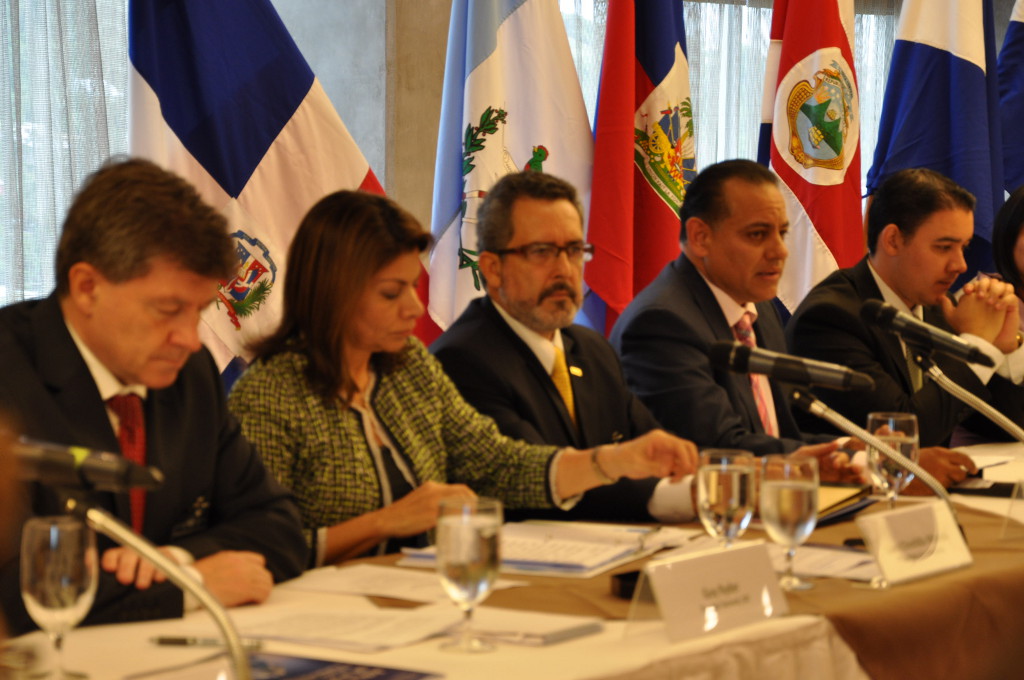
Costa Rica – a social and environmental development model
We are about 20 minutes into the interview and Olman Segura-Bonilla is unfolding what he calls his favourite topic and ultimate passion: sustainable development and knowledge based innovation. He is offering concrete examples of how it can be applied and used in practice by outlining Costa Rica’s development over almost three decades.
Costa Rica has over the past 30 years moved from being a coffee and banana producing developing country to become a middle-income country, where eco-tourism and technological development have become the backbone of the economy, says Olman Segura, whose impressive career is closely interlinked with his country’s path of development.
Traditional (anti)development
As the oldest of nine children, Olman Segura-Bonilla had to contribute to his brothers and sisters’ education while he studied economics and finance at the university in Costa Rica. It was demanding to juggle studying and working at the same time. In addition, he got deeply involved in the student movement. Nevertheless, he managed to get a scholarship to complete his first degree in the United States, where he graduated with a double Bachelor in Economics and Political Science from the University of Wisconsin, Eau Claire.
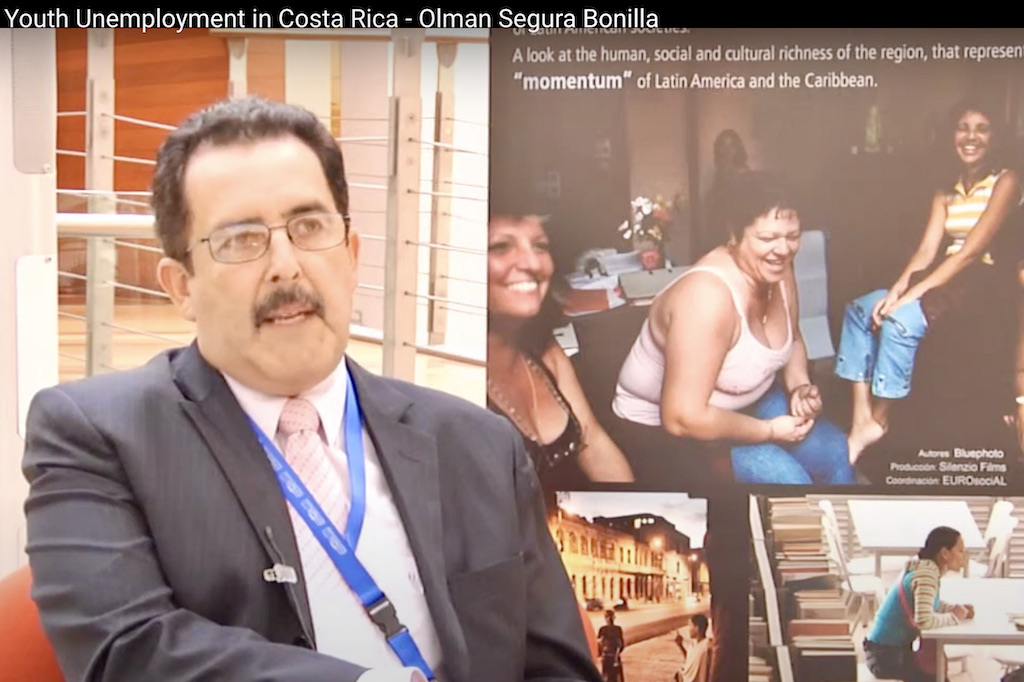
Later, he travelled to the UK to complete an M.Sc. in Economic Development for Latin America from the University of London, Queen Mary College and got introduced to the economics of natural resources and ecological economics.
When he returned to Costa Rica in 1991 it was clear to him that the traditional models of economic development were not the way forward.
As a matter of fact, the kinds of development we had experienced in most Latin American countries since the 60s were anti-development. They followed a pattern adopted from other continents without clear directions and goals, says Olman Segura.
Finding new ways in the 1990s
He especially focuses on two areas where he feels the traditional development models were falling short in Costa Rica and other Latin American countries.
Socially, the traditional development models that solely focused on economic growth were leading to increased poverty among the population.
Environmentally, the countries were heading towards the destruction of natural resources and ultimately people’s livelihood due to deforestation, land degradation and the widespread use of environmentally unfriendly pesticides.
We were some who could see that the old ways of thinking about economic development were miscalculated and wrong. But when we challenged the traditional thinking we would often be met with shaking heads and mistrust, he says recalling the initial and intense climate change debates around the time of the Earth Summit in Rio de Janeiro in 1992 when concepts of sustainability were in their early stages.
Collaboration with Denmark
Despite the lukewarm reception towards unconventional economic reasoning, Olman Segura, together with a group of similarly minded Latin American scholars, began to look for alternative ways of development.
They came across the Scandinavian model and approached the then Danish embassy, which covered Denmark’s development collaboration with Central America from Costa Rica’s capital San José.
Not long after, a project aiming at finding ways to secure a more comprehensive, all-inclusive and sustainable path of development in Central America took shape - and Olman Segura-Bonilla was on his way to Denmark to do a PhD at Aalborg University as part of the projects’ research components. The project name was Sustainable Development Strategies for Central America (SUDESCA) and part of Danida's ENRECA projects (ENhancing REsearch CApacity).
I never thought I would be doing a PhD in Denmark. As a matter of fact, I hesitated to take it at first, but today I feel privileged and happy for the experience and chance I got. I am proud to say that I used it to contribute to the development of my country, he says.
Sustainable development based on innovation
At Aalborg University Olman Segura joined The Innovation, Knowledge and Economic Dynamics Research Group (IKE Research Group). Although his area of focus was environmental sustainability, he soon got engaged in innovation. It was his two supervisors Bengt-Ake Lundvall and Bjorn Johnson that inspired him.
They would argue that the most important aspect of creating environmental sustainability is to develop new knowledge. They kept insisting that economics needs to be innovative to lead to sustainability. They also said that to be innovative we need to develop new knowledge, recalls Olman Segura-Bonilla emphasizing that innovation like sustainability was a new concept in the 1990s.
The result was a PhD thesis titled Competitiveness, systems of innovation and the learning economy: the forest sector in Costa Rica under the PhD programme Sustainable systems of innovation. It focused on sustainable systems of innovation and the forest sector in Central America as the case in point.
Included in the thesis are some of the concepts that eventually lead to the innovation of carbon offsets, as Olman Segura participated in the working group under the Minister of Environment that invented it. Forest management and conservation as well as reforestation to preserve water reserves are also part of his PhD thesis. So are discoveries and innovations used to develop Costa Rica’s eco-tourism.
Dr Segura-Bonilla explains that in addition to the knowledge and findings of the specific topic he also learned that the concept of innovation may be used in different economic areas, such as education, production, conservation and development in general.
Denmark left its mark
I ask Olman Segura-Bonilla if he could have completed his PhD elsewhere than in Denmark. His answer comes promptly.
I think Denmark gave us a general, different perspective and approach because the emphasis was on innovation and new knowledge. It is the kind of approach that allows a small country with limited natural resources to be a world leader in for example design and technological development. When it comes to innovation, Denmark and especially Aalborg University has something unique to offer, he says.
Tha SUDESCA (Sustainable Development Strategies for Central America - Enhancement of the Central American Research capacity) project was part of Danida's ENRECA projects (ENhancing REsearch CApacity) between Aalborg University, Department of Business Studies and FUNDE (Fundación para el Desarrollo) from El Salvador, the School of Economics of the University of El Salvador (UES), the School of Agricultural Economics (ESECA) from the Universidad Nacional Autónoma de Nicaragua (UNAN), and the International Centre for Economic Policies for Sustainable Development (CINPE) from Universidad Nacional, Costa Rica.
